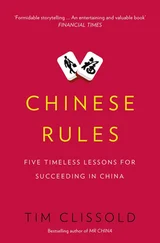ALEXANDRA: I just don’t know if it makes sense to label her. She’s seven . .
TAD: It’s not a question of labeling. We all get labeled eventually. I’m an assistant accounts manager. That’s a label. [flash of mint]
ALEXANDRA: That’s an empowering label, rather than a stigmatizing one.
TAD: Right. Do you not appreciate labels at the grocery store? [mint rising] Organic versus conventional. . aren’t they all. . how did you put it?
ALEXANDRA: I don’t remember my exact words.
TAD: Something about power.
ALEXANDRA: Power. . I don’t know. It’s besides the point.
TAD: Yes. So you’re shopping, let’s say, in the produce aisle. [mint surging]
ALEXANDRA: Tad, our daughter is not a tangelo. .
And then, as smoke and vapor at Cape Canaveral come gushing over the booster engines, subsuming the launchpad at the moment the rocket takes leave of it, the mint came on, a storm, a mint tsunami. When, over time, he came to recuperate the memories, he recalled that Alexandra herself had looked like she didn’t quite buy into what she was saying, was a little too emphatic, surprised him just a touch with her gesticulations, her word choices. “Stigmatizing”? Really? How often did she address him by name? A “tangelo”? I mean, it wasn’t as if her vocabulary was simplistic or anything, but those details stood out, like the way if your spouse was dressing a touch more provocatively than usual, or suddenly devoting a lot of extra time to grooming, it might raise some red flags about how s/he was spending evenings. But so much else was going on at the same time, such derangement of the senses, such weird weather. And maybe he was wrong. Maybe she loved tangelos; maybe the tangelo was her favorite fruit, her favorite thing on earth. Maybe she’d torn one open in her most unguarded moment, peel falling away, juice spritzing against her cheeks but sparing her eyes, a subsequent gush revealing the ecstatic itself. He’d been wrong before.

Unlike Tad, June recovered right away. She’d been talking with Brendan, the boyfriend (she used the definite article), about this habit he had at gatherings, where in the company of attractive young women whose cleavage likely exceeded hers by more than one cup size, he would tell these humorous stories about things that had happened to the two of them together but would fail to include her at key points in the story, as though he was Photoshopping her out — he was adept with such programs, like when he made that card for her that depicted her as a fifties housewife, gasping at her own prowess with a blender. He was saying, “Okay, but they’re just stories, and we both know that exaggerating some things and downplaying others is an intrinsic quality of storytelling. . ” Brendan was a grad student in literature, his thesis an unwieldy sandwich of postcolonialism and media studies, and they were in the stairwell, having halted a few steps up from the landing. They were both treating this conversation as though it needed to be held then and there, before they entered Apt. 2BF, as though they might be able to resolve it outside in some public way, before some tribunal (for they could often hear, from her bedroom, conversations that took place in this very same stairwell), and to be honest, June was thinking about getting on with things and doing mad, slalomy things involving Brendan’s cock, not rehashing the particulars of some forgettable exchange with Gillian Sando val . She caught a whiff of something that she thought might be carbon monoxide, was about to call a time-out so that they could either crack open her apartment door to check it out or evacuate. I mean, people die from that shit all the time — you see them on the news. But then she thought wasn’t CO odorless, and this was sort of minty in a vague way. This made her want to laugh, but was her desire to laugh the sort of thing caused by the invisible gas, or was it caused by how Brendan could be such an astute reader of sub-Saharan African literature but miss the very glaring subtext of his own words and nomadic eyeballs? But before she could answer, the purple paisley in the wallpaper had started to slither its way into her brain instead of staying out there where it belonged.
When June told him this over the phone, Jason Tubbs had this strange recollection of the York Peppermint Pattie commercials of his childhood. The mention transported him back to Ottawa, to his grandparents’ place, where either he’d seen those commercials or which he just associated with them because of the cold and because his grandparents gave him lots of treats. All of those old commercials could now be easily watched online. They were cheesier than he recalled, but he couldn’t get around the resemblance between what went on with them and the accounts of these explosions. Tubbs broke the story, and Homeland Security brought in teams of chemists at the next explosion, which occurred at a DMV in upstate New York, to try to suss out any trace of mintiness, the residue of any sort of chemical, like some gas that might’ve mimicked mint seconds before combusting. There was no chemical known to do this, though certainly terrorists were always trying things, and so it was not outside the realm of possibility that they would’ve stumbled onto some new concoction. But there was nil of mint in the math of after, only the char of fabric and flesh and paper.

Tad became an apostle of the Privacy Movement. Poster child, wheeled up to microphones by his younger, blonder second wife and his daughter, who had ultimately not been classified as learning-disabled and done just fine, thank you very much. His trademark shirt read on the front THE ORIGINAL BLACK BOX, a play on the notion that he had “recorded” his Conversation — that is, could recall it — without the government shoving its wires into his personal space, and on the back, REMEMBER TO REMEMBER WHY WE REMEMBER, which, if repetitive, made a sort of sense and had an alluringly chantable and stampable rhythm and echo rhyme. The message was obvious: if there was anyone who had every right to argue that the government should do whatever it took to get to the bottom of these attacks, it was double-amputee, three-time blood-transfusion-recipient Tad, but he was not calling for these things. He’d never been antigovernment before, but the blast changed him. He teamed up with those who were all-out conspiracy theorists, who deemed the whole thing an inside job. He refused to carry a box or don a roomsuit, and he kissed a lot of babies.

The Mint Industry, for its part, tried to turn things to their advantage at first. The “Mint: Part of the Solution?” campaign flopped, though. Suddenly, it seemed that nobody wanted anything to do with mint toothpastes and chewing gums and teas, breath mints and mouthwash — all yoked by association with the most chilling and senseless deaths. Folks wanted it out of their houses, their lives. Kids drove around stockpiling boxes left out back behind pharmacies and convenience stores, wanting to re-create those mintgasms on their lips and tongues as vividly as possible, barely able at times to carry on a conversation, much less a Conversation, with all the hard candy bobbing in their gargle. They were stoned on top, half the time.
The effects on conversation itself were more slippery, tougher to measure than that on industry. Some would say that verbal interactions became less rancorous as people minded their words more carefully, noting that conflict was close to a universal in the documented Conversations. Others said that was a myth, mere wishful thinking. There were countless false positives, people who panicked in mid-sentence, slamming on their tongues’ brakes, sure that they were about to be reduced to smithereens. It can’t be said that anyone escaped fully from the shadow of the Conversations’ impact. Everyone had to feel some added self-consciousness, some doubt that their words, at times, were their own, though of course it was pointed out by wiser thinkers that they had always felt this way to some extent, that these events had merely delivered to awareness a suspicion that had long lurked for most everyone. Still, who could help but feel a bit of envy for the mute, volitional and otherwise, the hermit, the idiot, the monk, even the taciturn and the plain agreeable?
Читать дальше













